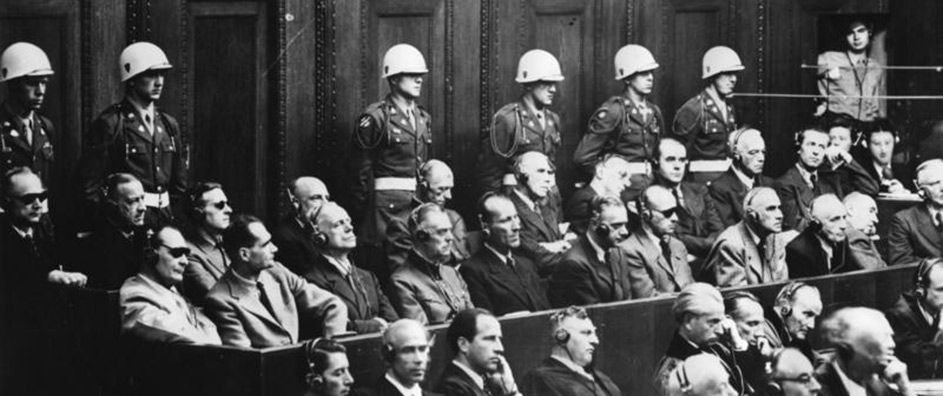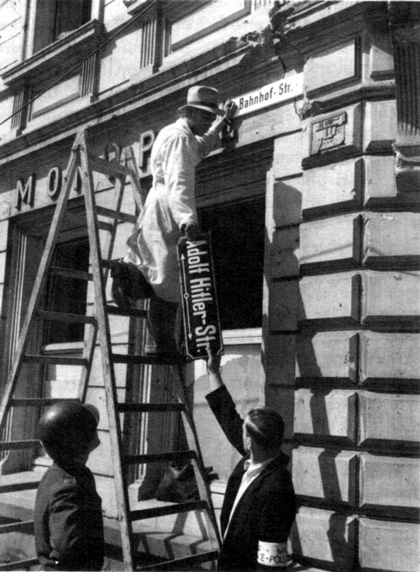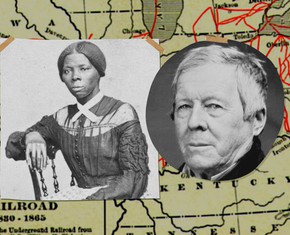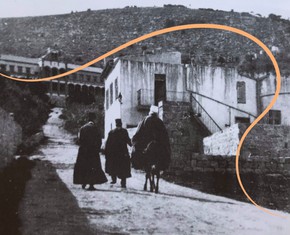The views expressed in our content reflect individual perspectives and do not represent the authoritative views of the Baha'i Faith.
After World War II, with the help of the Allied powers, a defeated Germany successfully rebuilt its largely-destroyed infrastructure and re-constructed its bombed and burned-out cities.
But how did Germany deal with its Nazi past psychologically and spiritually?
Many historians, artists and social commentators have chronicled the postwar German struggle to face up to the legacy of the Nazi era. After all, most have pointed out, a large percentage of the German people elected the National Socialist Party and its head, Adolf Hitler in the early 1930s; and then continued to support the Nazis far into the war years. In defeat, however, the Nuremberg trials and the de-Nazification programs gradually helped set a new tone for the country – one that emphasized the building of a modern liberal democracy officially free of the racial and religious hatred that characterized the Nazi regime.
The new postwar German constitution completely affirmed, for example, the absolute freedom of religion, and made religious and racial hate speech a serious crime.
The 1945-46 Nuremberg trials, where the Nazi leadership was actually prosecuted after the war ended, witnessed the first true application of the international laws that prohibited war crimes. The defendants did not include Adolf Hitler, Heinrich Himmler, or Joseph Goebbels, the three main Nazi perpetrators — they all committed suicide rather than be taken prisoner by the Allied powers. Several of the prominent members of the German high military and political command who were tried, however, used the same infamous defense: “I was just following orders.”
That defense, of course, didn’t work. In a victory for the higher ethics the Baha’i teachings assert, the court ruled that orders to commit war crimes or genocide were unlawful orders; and that following them represented violations of basic human morality and international law.
Later called “The Nuremberg Defense,” this phrase has now entered the world’s lexicon, becoming synonymous with the abdication of personal responsibility. It now symbolizes the complete lack of an individual moral and spiritual compass.
The Nuremberg trials brought about a subsequent unfolding of multiple international laws and agreements that mirror the Baha’i call for an international system of justice serving a unified world. Those historically-unprecedented new global laws include The Genocide Convention and The Universal Declaration of Human Rights, both adopted in 1948; The Convention on the Abolition of the Statute of Limitations on War Crimes and Crimes against Humanity in 1968; The Geneva Convention on the Laws and Customs of War in 1949 and its supplementary protocols in 1977; and eventually, the establishment of the permanent International Criminal Court in The Hague, now indicting and prosecuting war criminals and even heads of state who commit war crimes or order genocide.
This remarkable set of recent developments represents the beginning of a major worldwide trend toward the international governance and justice system the Baha’i Faith has advocated since the middle of the 19th Century. Baha’u’llah called for a world tribunal as early as 1873, when the concept had barely entered the consciousness of the most progressive legal systems. Abdu’l-Baha spoke in Paris in the early 20th Century about this important Baha’i principle:
A Supreme Tribunal shall be established by the peoples and Governments of every nation, composed of members elected from each country and Government. The members of this Great Council shall assemble in unity. All disputes of an international character shall be submitted to this Court, its work being to arrange by arbitration everything which otherwise would be a cause of war. The mission of this Tribunal would be to prevent war. – Paris Talks, p. 155.
Both the League of Nations and the United Nations have attempted to fulfill this powerful vision of a democratically-elected world tribunal, but at the outset both fell short of the Baha’i ideal. Instead, their formative charters, born out of the world wars that preceded their inaugurations, constructed global bodies that privileged some nations over others and thereby created intractable decision-making problems.
The Baha’i view – that the world must eventually develop and implement a global governing body – still has yet to come to fruition. As all of these signal international achievements clearly indicate, however, the world has consistently grown closer to effective international governance and the world unity it will help bring about.


















Comments
Sign in or create an account
Continue with Googleor